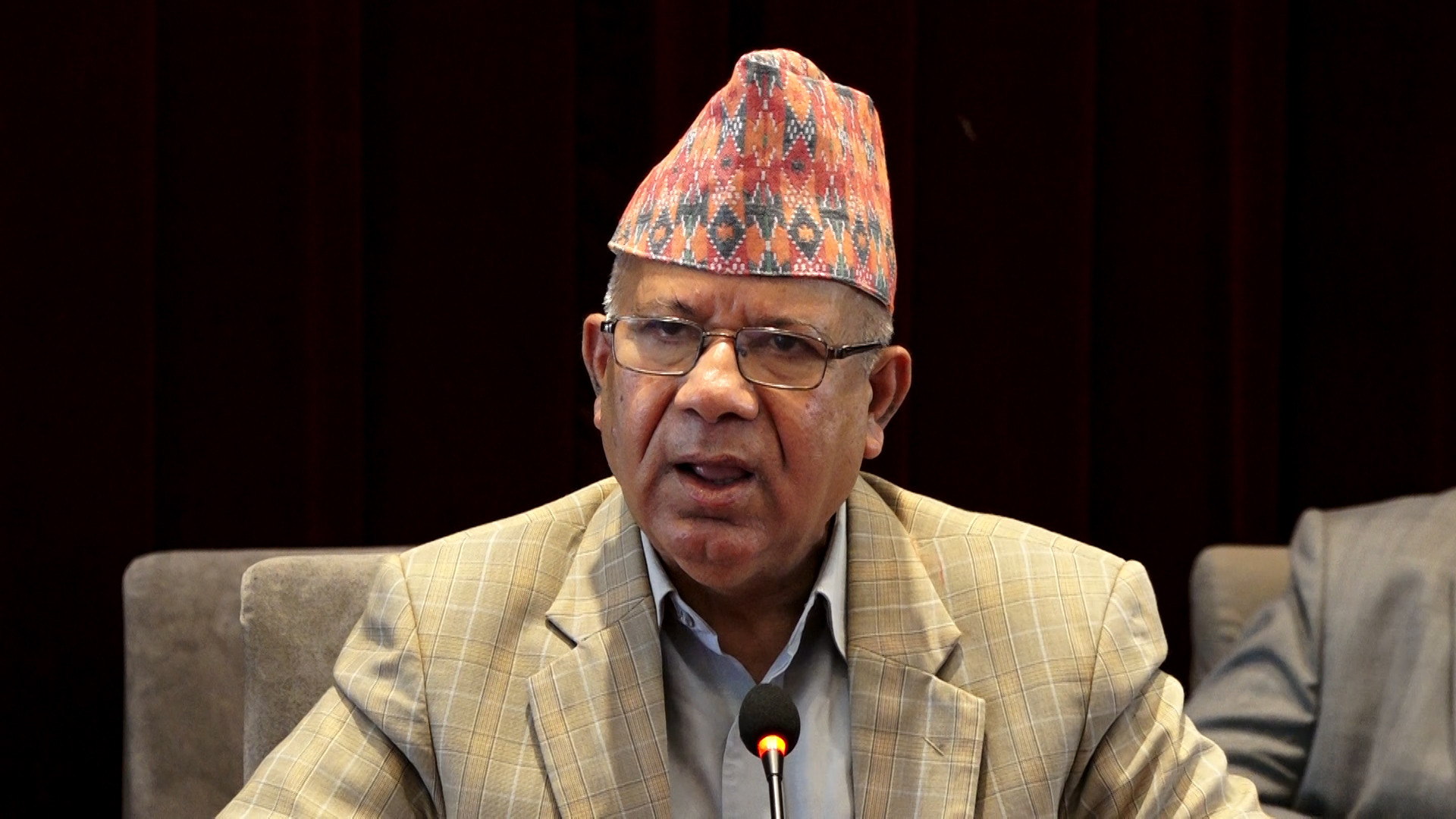CPN (Unified Socialist) led by Madhav Kumar Nepal faces the challenge of becoming a national party in the general election to be held 16 months after splitting from the main opposition CPN-UML.
The party is in the ruling coalition which has already decided to forge electoral alliance, and may win a few seats in the first-past-the-post (FPTP) electoral system. But winning a few FTTP seats alone does not suffice.
A party needs to secure at least three percent of total votes in the proportional representation (PR) system on top of winning at least one federal seat through the FPTP system to become a national party.
Crossing the three-percent threshold may well prove a bigger challenge for the party and Chairman Nepal, aware of that, has been instructing party leaders and cadres to focus on increasing PR votes. “Don’t depend on coalition. We have the challenge of increasing PR votes. Attract the people to vote on pen,” he has been saying in internal party meetings and trainings.
Unified Socialist Secretary Ram Kumari Jhakri states that the rank and file is being mobilized in a way to make it a national party. “We have kept the sister organizations active. Trainings are being conducted in a way to maximize PR votes.”
The party’s candidates for ward chair in 2,041 out of 6,743 wards across the country received a total of 422,737 votes which is 3.66 percent of the total valid votes for ward chairs. Its candidates were elected chair of 190 wards with a whopping 80 of those wins coming in Madhesh Province where the party is relatively stronger.
But the votes included those from coalition partners and Jhakri herself concedes that the real party votes were only around 300,000.
Unified Socialist had split from UML with organizations across the country and the party, therefore, has cadres and voters across the country. The party claims that its votes in almost two-third of the total wards across the country where it did not field candidates more than offsets the coalition votes it received in the wards where it fielded candidates.
UML itself has been conceding that it lost around 500,000 votes in the local election due to Unified Socialist and is trying to lure back Unified Socialist leaders and cadres. Unified Socialist will face additional challenge if UML manages to take back a few senior leaders. But the leaders are unfazed.
“Unified Socialist was formed due to national needs. We have a few challenges. There are a few challenges in front of us. We will definitely get the status of national party facing all of them,” Deputy General Secretary Ganga Lal Tuladhar states.

